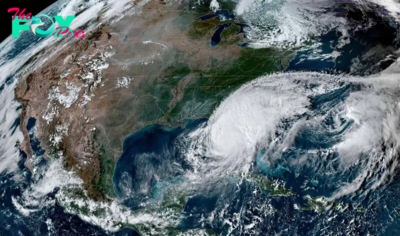Science
Scientists discover the possible origin of the sun's magnetic field, and it's not where they thought it was
Scientists have found the possible origins of the sun's magnetic field, and it's not where they thought it was.
The discovery, made using complex computer simulations, suggests that the sun's magnetic field arises from instabilities in the plasma across the outermost layers of the solar surface, rather than from deep within the star as researchers previously thought.
If the findings are right, their discovery could give scientists a better chance of predicting solar flares and storms that can cause power outages, cripple the internet and even send satellites tumbling to Earth. The researchers revealed their findings in a study published May 22 in the journal Nature.
"I think this result may be controversial," co-author Keaton Burns, a research scientist at MIT, said in a statement. "Most of the community has been focused on finding dynamo action deep in the sun. Now we're showing there's a different mechanism that seems to be a better match to observations."
The sun is a gigantic ball of plasma whose charged ions swirl to create powerful magnetic fields. This region of roiling, flowing plasma, known as the "convection zone," comprises the top third of the sun's radius — stretching from the surface to roughly 124,000 miles (200,000 kilometers) beneath its surface.
Related: Solar maximum may already be upon us, expert warns — but we won't know for sure until the sun's explosive peak is over
Magnetic field lines cannot cross each other, so sometimes these fields knot into kinks before suddenly snapping — which in turn launches bursts of radiation called solar flares or enormous plumes of solar material called coronal mass ejections (CMEs) out into space. Once launched, CMEs Travel at millions of miles per hour, sweeping up charged particles from the solar wind to form a giant, combined wavefront that, if pointed toward Earth, can trigger geomagnetic storms over our planet.
-

 Science2d ago
Science2d agoInside Capitol Hill’s Latest UFO Hearings
-

 Science2d ago
Science2d agoYou Won’t Want to Miss the Leonid Meteor Shower. Here’s How and When You Can See It
-

 Science3d ago
Science3d agoHere’s What Trump’s Win Means for NASA
-

 Science6d ago
Science6d agoWhy Risky Wildfire Zones Have Been Increasing Around the World
-

 Science6d ago
Science6d agoIt’s Time to Redefine What a Megafire Is in the Climate Change Era
-

 Science1w ago
Science1w ago4 Astronauts Return to Earth After Being Delayed by Boeing’s Capsule Trouble and Hurricane Milton
-

 Science1w ago
Science1w agoThe Elegance and Awkwardness of NASA’s New Moon Suit, Designed by Axiom and Prada
-

 Science1w ago
Science1w agoSpaceX Launches Its Mega Starship Rocket. This Time, Mechanical Arms Catch It at Landing



























